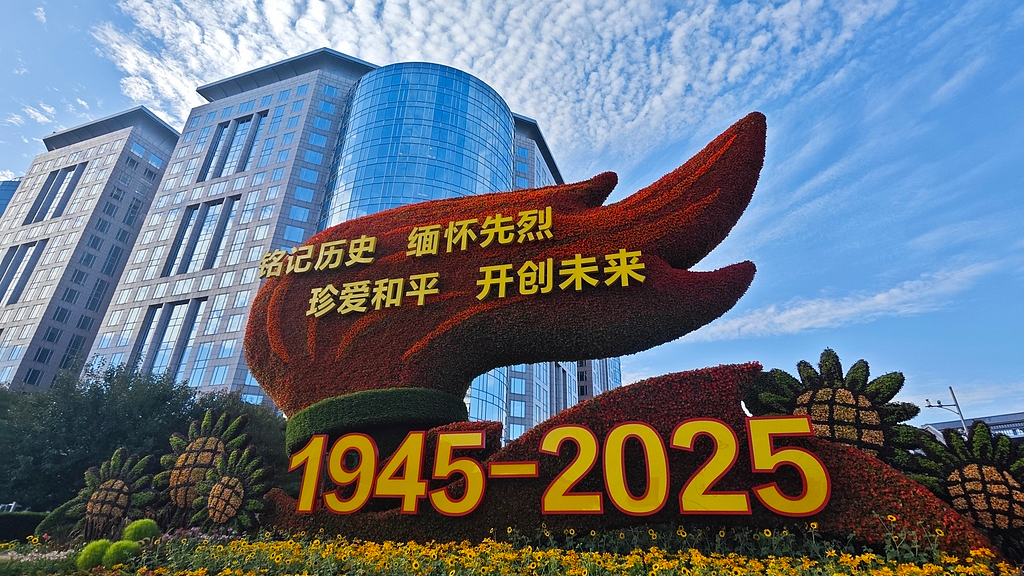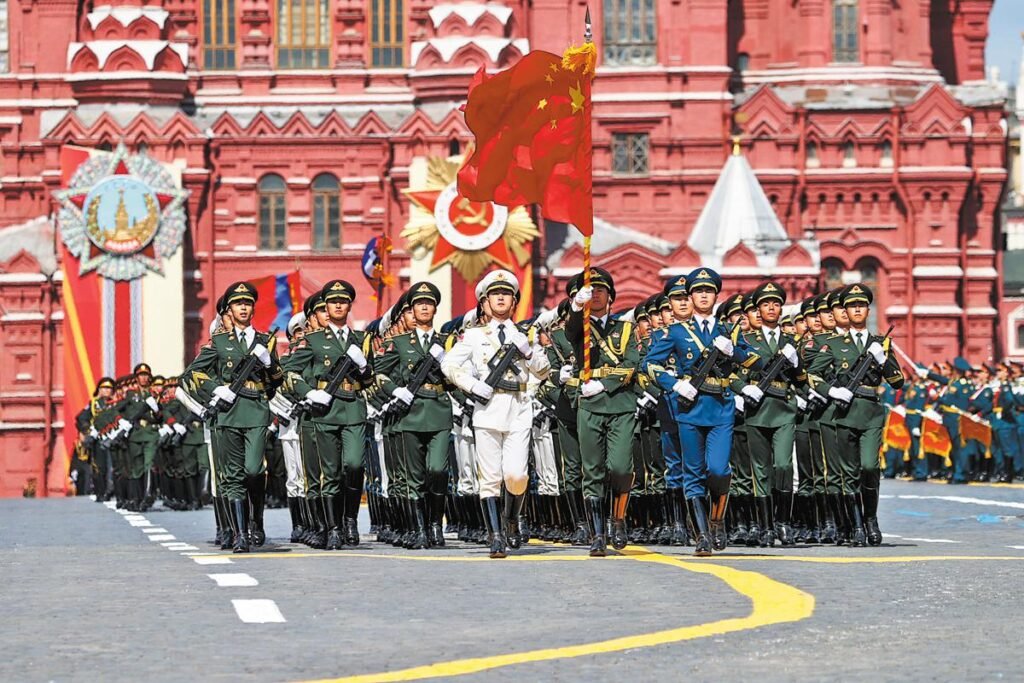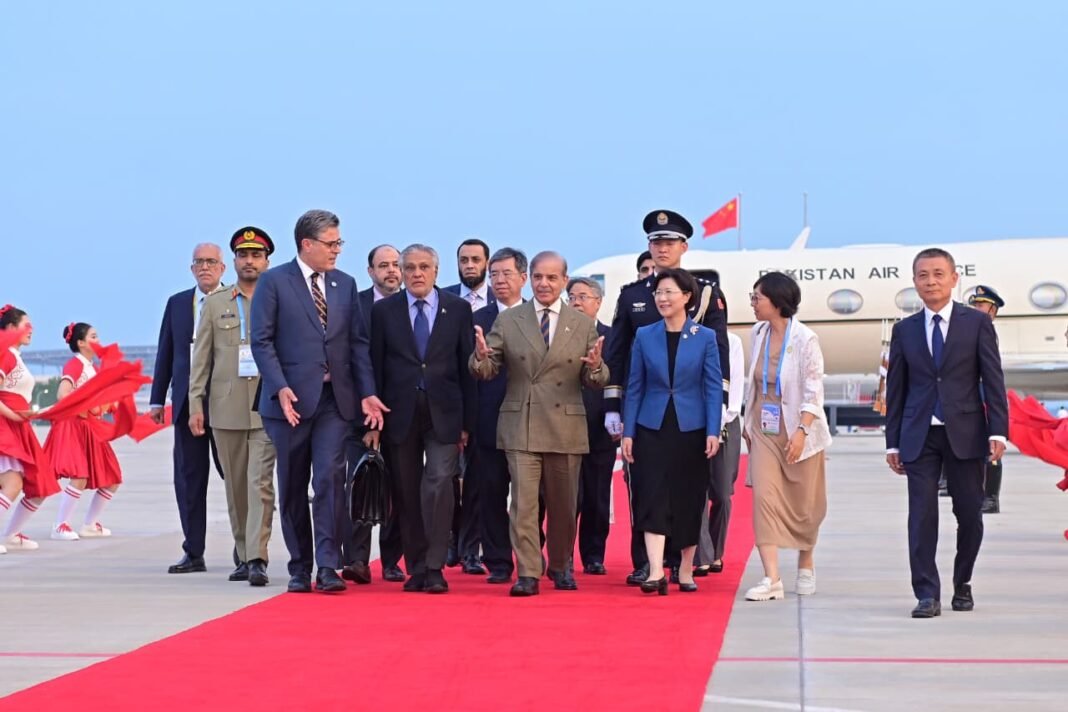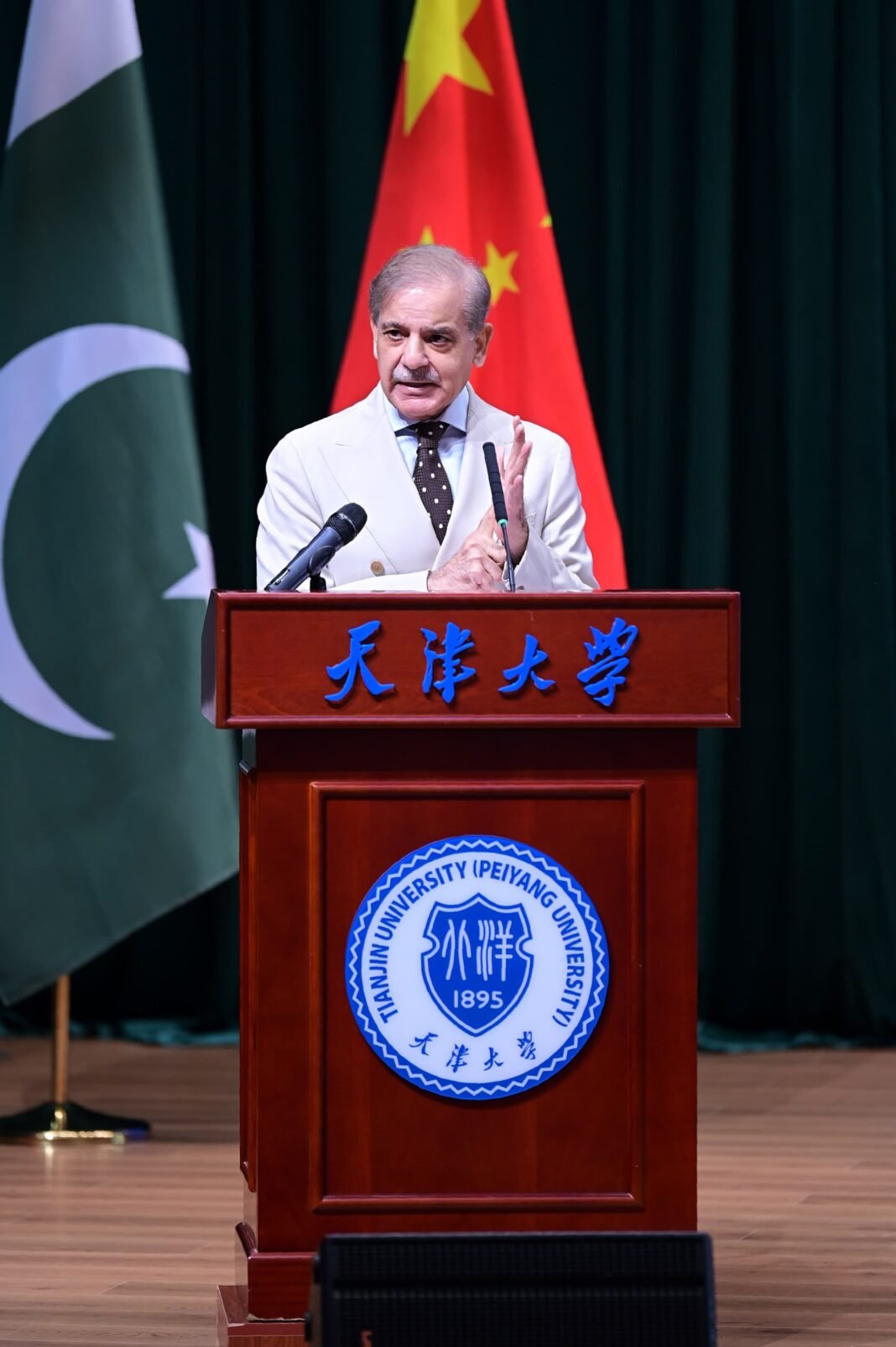
Jiang Tao, reporter
CGTN Radio
On September 3, China will stage a grand military parade to mark the 80th anniversary of the victory in the Chinese People’s War of Resistance Against Japanese Aggression and the World Anti-Fascist War. From fighter jets to hypersonic missiles, many of the People’s Liberation Army’s most advanced technologies will be unveiled for the first time. Alongside new-generation drones, carrier-based aircraft, robotic dogs, unmanned ground vehicles, and counter-drone systems, traditional weaponry will also be on display.
It is almost unimaginable that in the 1930s and 1940s, China resisted Japanese militarism with little more than rifles—and sometimes even broadswords. Yet with such rudimentary arms, the Chinese people waged a heroic resistance, ultimately crushing Japan’s imperial ambitions at the cost of at least 35 million military and civilian lives. From a global perspective, China’s resistance fundamentally altered the trajectory of the wider Anti-Fascist War—blocking Japan’s designs to strike north against the Soviet Union or south into the Pacific. Shoulder to shoulder with the Allies, China made immense contributions to the eventual defeat of fascism.
The Chinese nation has long cherished the principle of “standing together against aggression.” In the darkest hours of war, China fought not only for its own survival, but also for the freedom of others. In April 1942, Chinese forces battled fiercely in Burma to rescue more than 7,000 trapped British troops along with over 500 missionaries and journalists. Around the same time, in eastern China’s Zhejiang Province, Japanese troops killed some 250,000 Chinese soldiers and civilians in retaliation against local villagers who had saved 64 of the 75 American pilots forced to land after the Doolittle Raid on Tokyo.
The men and women of every nation who stood against Japanese militarism and Nazi Germany displayed extraordinary courage and sacrifice. For China, the generation that resisted aggression between 1931 and 1945 gave everything for the motherland, while also writing an enduring chapter in the history of humanity. China was not a passive victim in World War II—it was an active contributor.
China not only called for but also helped forge the international anti-fascist united front. After the outbreak of the Pacific War, it was among the original signatories of the Declaration by United Nations, which formally established the alliance against the Axis powers and laid a solid foundation for Allied victory. Later, as one of the Four Major Powers, China took part in creating the United Nations and shaping the post-war order. As a founding member and permanent member of the UN Security Council, it has always championed global peace and cooperation.
A Chinese proverb reminds us: “Use history as a mirror, and you will understand the rise and fall of nations.” In today’s turbulent global environment, reflecting on history provides not only lessons but also guidance for the choices we face. World War II inflicted indelible scars on human civilization. For China, it was among the most tragic ordeals in its long history. This is why China despises war so deeply. Since the founding of the People’s Republic, China has not initiated a single conflict. This is no accident. A nation that has endured such immense suffering understands the value of peace more than most. But peace never comes by default—it must be safeguarded.

In the new era, China has advanced the vision of building a “community with a shared future for humanity.” This vision is rooted in the wartime realization that isolationism is untenable, that the strong preying on the weak is a universal danger, and that the destinies of all nations are inseparably linked. To build a world of lasting peace, common security, shared prosperity, openness, inclusiveness, and ecological sustainability is not merely a response to the wounds of history—it is also a conscious choice for the future.
Sohail Majeed is a Special Correspondent at The Diplomatic Insight. He has twelve plus years of experience in journalism & reporting. He covers International Affairs, Diplomacy, UN, Sports, Climate Change, Economy, Technology, and Health.





![logo-1[1]](https://globalnewspakistan.com/wp-content/uploads/2025/01/logo-11-e1737618310315-300x187.png)